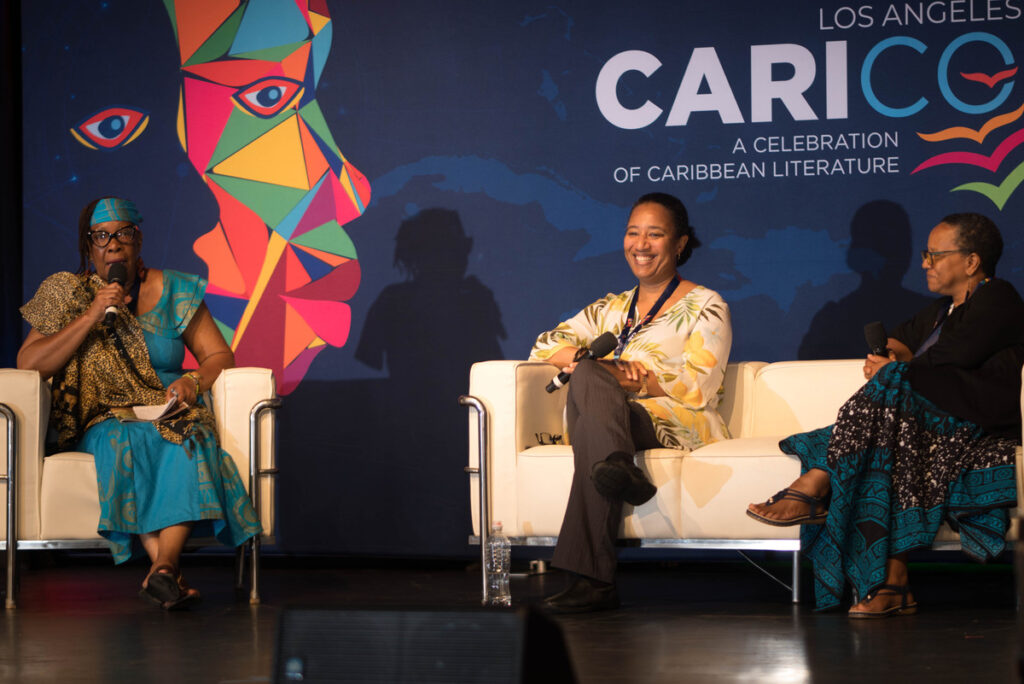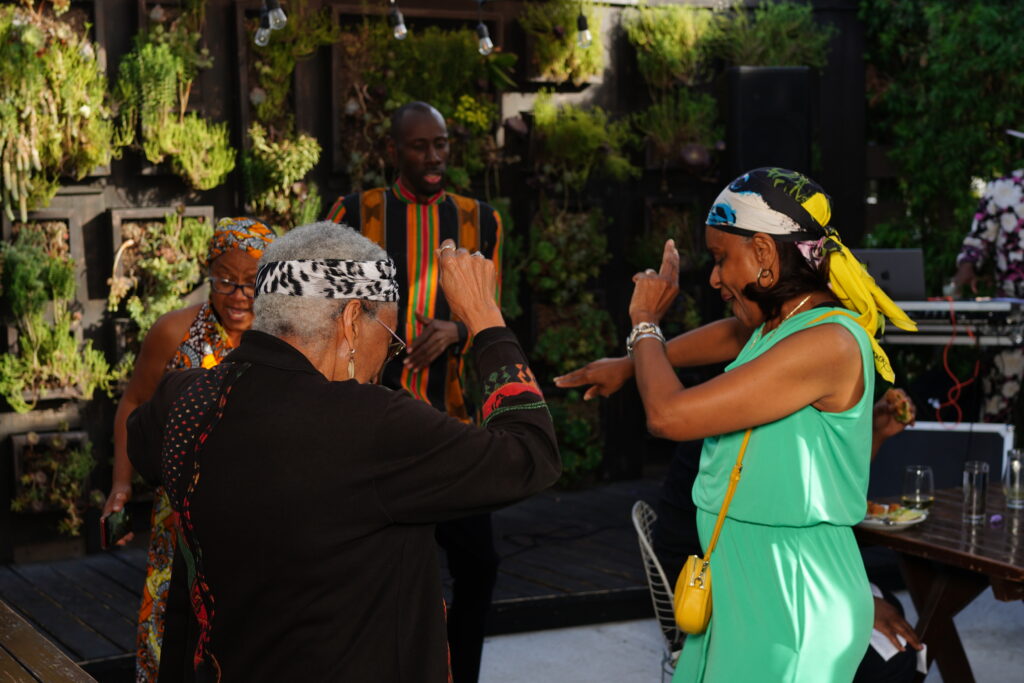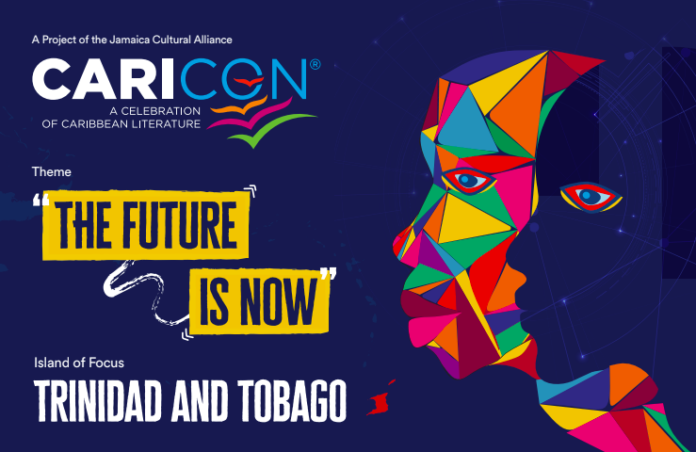( ENSPIRE Community Spotlight ) USC (University of Southern California) Hosts CARICON 2023 to Caribbean Culture
ENSPIRE Contributor: Wesley Tran
The annual international literary event CARICON, in partnership with The FUNtastic Book Fair, hosted a three-day conference at the University of Southern California (USC) on June 2-4, to set the stage for the start of Caribbean American Heritage Month. Presented by the grassroots non-profit organization Jamaica Cultural Alliance, CARICON 2023 united global scholars, writers, and literary enthusiasts to explore the rich history and notable contributions of Caribbean literature and culture.
Themed “The Future is Now,” CARICON 2023 provided extensive educational programming, keynote speakers, workshops, panel discussions with top leaders, a book expo, live entertainment, and special performances aligned with the multifaceted dimensions of Caribbean heritage. Each day, attendees enjoyed a full day of curated programming and an evening of special guest performances by top artists such as KG Superstar. International storyteller Dr. Amina Blackwood Meeks kicked off the weekend by presenting to students at Marcus Garvey Elementary on June 2, 2023. Nestled in South Los Angeles, the school was named after Jamaica’s first National Hero and Pan-Africanist, Marcus Garvey.

ENSPIRE was given the amazing opportunity to interview V. Steve Russell about CARICON. Read about it below!
What were some of the most impactful insights and experiences that were shared?
Throughout CARICON 2023, attendees were exposed to numerous impactful insights and experiences that left a profound mark. Dr. Amina Blackwood Meeks’ keynote presentation, centered on the power of storytelling in cultural preservation, emphasized the influence literature has in shaping our understanding of diverse cultures and served as a reminder of the importance of preserving and celebrating cultural identity. Panel discussions and conversations with esteemed individuals like Melissa Shepherd-Williams and Dr. Myriam Chancy provided a platform for thought-provoking conversations on Caribbean literature, and finally, workshops conducted by authors Tiphanie Yanique and John Jennings delved into innovative methods of expressing cultural beliefs through various mediums.
These immersive sessions sparked engaging discussions, inspired creativity, and deepened attendees’ connection to Caribbean literature to create an environment of intellectual growth and community. By gaining fresh insights into the complexities of Caribbean literature, discovering emerging talents, and challenging their preconceived notions through thought-provoking conversations, the impactful experiences at CARICON not only broadened attendees’ understanding of Caribbean culture but also empowered them to explore their own creative potential.
Why do you think it is important to host CARICON or even cultural events?
CARICON and other cultural events play a crucial role in celebrating diversity, fostering understanding, and promoting cultural exchange. These events provide a platform for showcasing the vibrant and unique expressions of different cultures, including literature, music, art, and traditions. By hosting CARICON, we create an avenue for the exchange of ideas and experiences, nurturing literary talent and contributing to the growth of the Caribbean literary landscape. The conference facilitates invaluable networking and collaboration among writers, publishers, literary agents, and industry stakeholders, leading to new opportunities, partnerships, and career advancements.
They serve as a catalyst for the appreciation and preservation of diverse cultures, challenging stereotypes, and fostering respect and appreciation for different perspectives. This creates a space to promote inclusivity and encourage individuals to explore and learn about other cultures to foster a sense of unity and shared experiences among attendees.
What are some things that went well that you would want to do next year?
We had several highlights that we aim to build upon for future conferences. The keynote addresses, workshops, and pitching opportunities were particularly well-received by attendees, providing valuable insights and networking opportunities. To enhance the conference experience, we plan to invite even more influential keynote speakers next year, ensuring a diverse range of perspectives and expertise to inspire and engage our audience.
The community connection with Marcus Garvey Elementary students was a significant success. Through storytelling and cultural immersion, the students had the opportunity to experience the richness of Caribbean culture firsthand. This initiative fostered a deeper appreciation for literature and cultural heritage among the younger generation. We plan to expand on these successful elements in future conferences, amplifying the unique cultural experiences and interactions that make CARICON truly memorable.
What activations were implemented this year and how did your audience/attendees react to it?
One engaging activation introduced at this year’s CARICON was the “Know Your
Island” activation, in partnership with the Los Angeles Public Library. Attendees were invited to participate in a flag identification challenge, where they had to identify the flags associated with different Caribbean islands. This interactive activity sparked enthusiasm and curiosity among the audience, fostering conversations and connections as participants explore the diverse cultures and national identities represented in the Caribbean.
Attendees could select their favorite button to wear throughout the conference, which added a personalized touch to the event and facilitated networking among like-minded individuals, creating a vibrant and inclusive atmosphere. Overall, the activation successfully enhanced the attendee experience at CARICON, promoting engagement, cultural awareness, and interaction throughout the conference.
What do you think are some negative narratives that can discourage people from wanting to learn more about other cultures?
In my view negative narratives that discourage people from learning about other cultures often stem from stereotypes, prejudices, and a lack of exposure or understanding. These narratives can create barriers and reinforce biases, hindering the exploration and appreciation of diverse cultures. At CARICON, our mission is to challenge these negative narratives by providing a platform that celebrates the richness and complexity of Caribbean literature and culture. By actively addressing and dismantling these negative narratives, we create an environment that promotes cross-cultural understanding, unity, and mutual respect.

“We are thrilled to be back on the ground and to bring CARICON to the campus of USC,” said the conference Director, V. Steve Russell. “This is a great opportunity for emerging and established writers to share their stories, ideas, and experiences and to inspire the next generation of Caribbean voices.“
Free and open for all to enjoy, CARICON 2023 sought to disrupt the narrative and bring all communities together for a dialogue that encourages the acquisition of cultural knowledge directly from the source.
To learn more about CARICON be sure to check out their website!
Related Articles: Wyclef Jean Honored at the Chefs of the Caribbean Celebrity Brunch, CaribbeanTales Media Group’s Brand-New Comedy Series “Garvey’s Ghost”







